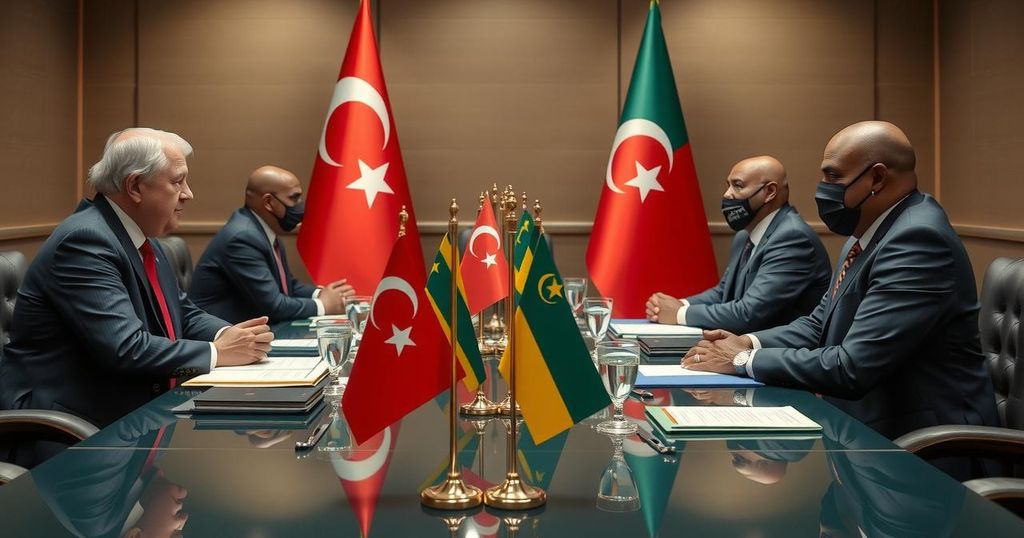Turkey-Mediated Agreement Between Somalia and Ethiopia Addresses Key Maritime Issues
Somali President Hassan Sheikh Mohamud and Ethiopian Prime Minister Abiy Ahmed concluded negotiations in Ankara, facilitated by Turkey, resulting in the Ankara Declaration. This agreement recognizes Somalia’s territorial integrity while granting Ethiopia access to Somali ports, addressing long-standing maritime disputes. Turkey’s role was significant due to its investments in Somalia and efforts to mediate ongoing tensions primarily revolving around Somaliland’s status.
During a recent meeting in Ankara between Somali President Hassan Sheikh Mohamud and Ethiopian Prime Minister Abiy Ahmed, high expectations surrounded the negotiations facilitated by Turkey. For nearly a year, Turkey’s efforts to mediate a brewing port crisis between Somalia and Ethiopia had yielded little beyond vague assurances. The central issue stemmed from an Ethiopian memorandum of understanding (MoU) with Somaliland, a northern Somali region seeking independence, which Somalia viewed as a threat to its territorial integrity. Turkey’s President Recep Tayyip Erdogan insisted that the two leaders reach an agreement, resulting in extensive discussions involving both leaders and Turkish officials.
The negotiations focused on Ethiopia’s recognition of Somalia’s territorial unity, with Somalia arguing that the recognition was imperative in light of the 1933 Montevideo Convention, which defines statehood criteria, including having a defined territory. Ultimately, the two nations reached the Ankara Declaration, which secured Ethiopia’s acknowledgment of Somalia’s territorial integrity while granting Ethiopia access to Somali ports. This accord necessitated further technical negotiations facilitated by Turkey to be completed by June 2025.
The agreement is viewed as a diplomatic success for both Somalia and Ethiopia. Analysts suggest that this deal not only resolves a critical port issue but also ensures that Ethiopian troops remained in Somalia, aiding in counter-terrorism efforts against the al-Shabab militant group. Turkey has significantly invested in Somalia, establishing military bases and supplying humanitarian aid, thereby bolstering its diplomatic influence in the region. The evolving political landscape in Somaliland may further impact future relations, particularly with potential recognition from the United States.
The maritime and territorial disputes between Somalia and Ethiopia, particularly concerning Somaliland, have been a longstanding issue. Ethiopia, being landlocked, has historically sought access to maritime routes for trade and logistics. The MoU signed with Somaliland represented a pivotal moment in these dynamics, as it suggested international legitimacy for Somaliland’s claim to statehood, which Somalia actively opposes. This dispute prompted Turkey to take on a mediatory role, emphasizing its interest in regional stability and collaboration.
The recent negotiations between Somalia and Ethiopia, facilitated by Turkey, culminated in an agreement that appears to address the significant concerns of both nations. By recognizing Somalia’s territorial unity while still allowing Ethiopia commercial access to the Somali coastline, this deal illustrates a compromise that emphasizes cooperation over conflict. Moving forward, continued dialogues will be pivotal in maintaining stability in the region and navigating the complex relationship with Somaliland.
Original Source: www.middleeasteye.net




Post Comment